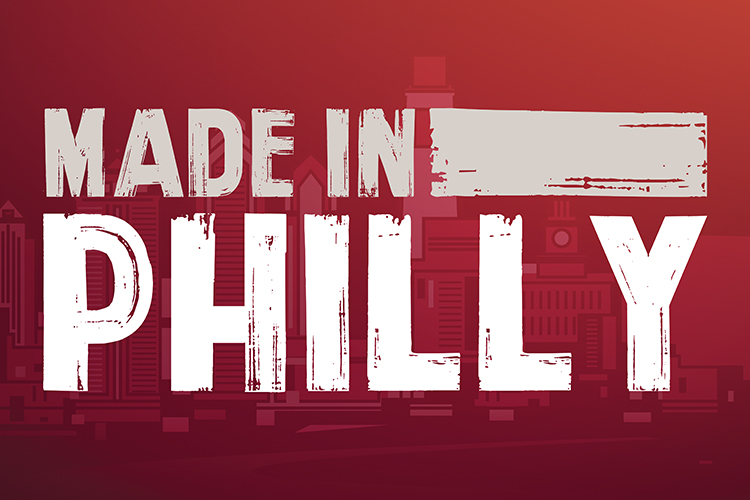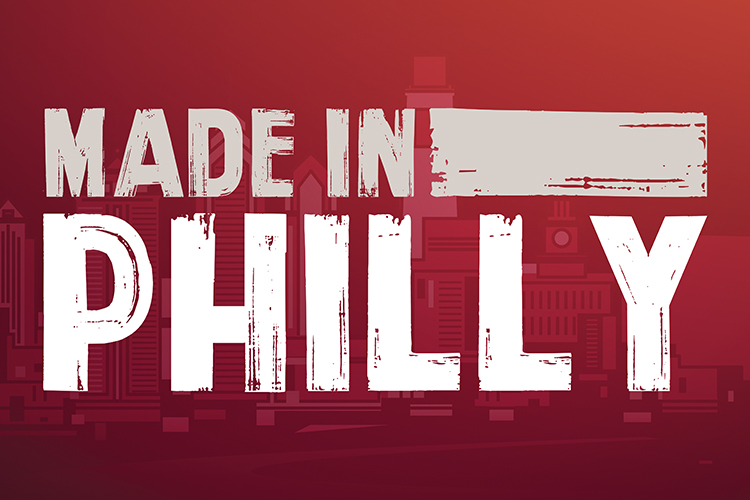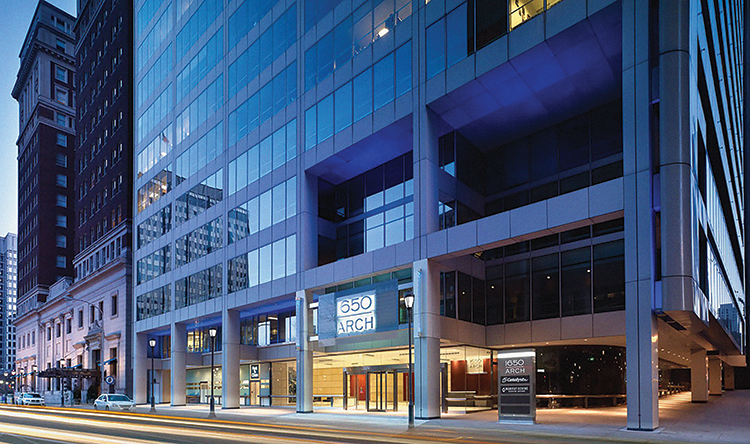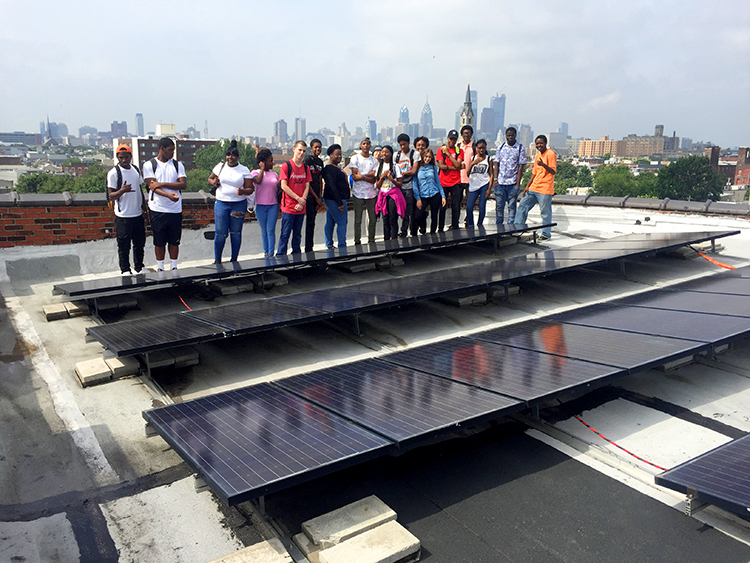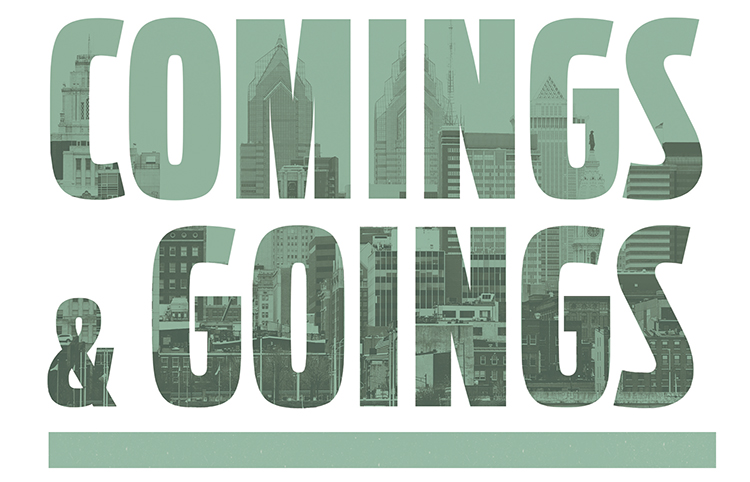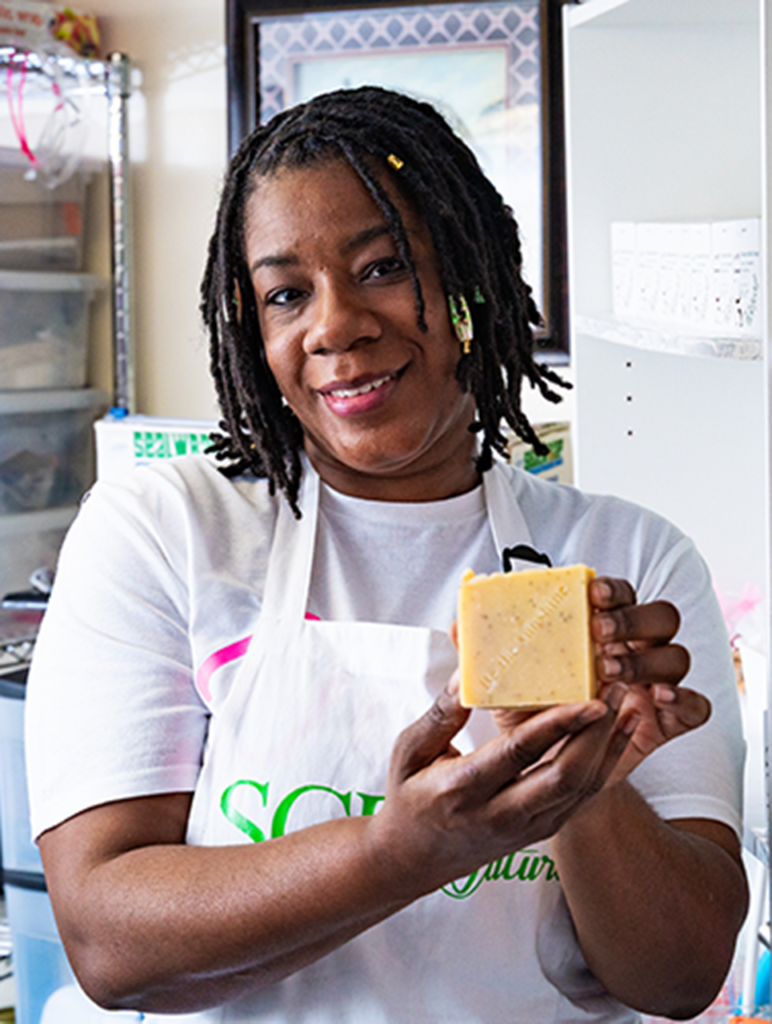As we move further along into a federal administration that is hostile to policies such as the Clean Water Act and efforts such as the Paris climate agreement, the role of states and populous cities becomes ever more important. Last year was, again, the hottest year on record, and climate projections for Philadelphia tell us that we can expect more of the same: Our city is getting hotter and wetter, and we have to be prepared for it. “Mitigation” has evolved into “adaptation and resilience” in the face of the changes we’re already experiencing.
Getting to scale on sustainability solutions means having good public policy in place, and you need not look further than your immediate environs to see just how much our city is doing to protect our future. Green City, Clean Waters, our internationally lauded stormwater plan, is not only helping us comply with the Clean Water Act, it’s making our city greener. Those medians out on Delaware Avenue aren’t just pretty flowers—they’re keeping the roadway from flooding in emergencies. The William Penn Foundation has made massive investments in revitalizing our watershed, and it’s going for broke on the Rebuild program (a major infrastructure investment across the city funded in part with the “soda tax”) with its biggest-ever grant of $100 million. Investments in public transportation are also on the rise, and the specter of high-speed rail becomes more embodied with each passing year—it would be a game-changer for the region.
We’re cleaning up our act on the waste and energy front, with ambitious goals for new city-sponsored initiatives (the Zero Waste and Litter Action Plan along with the new Solarize Philly program are exciting developments) and steadily working toward many other citywide goals through a now-permanent Office of Sustainability. And our Energy Development Authority has big plans to invest in efficiency work that could create 10,000 new jobs—a critical component to ameliorating the equity issues that still challenge our city.
The role of private business is important as well, and we’ll get to scale faster because of those entrepreneurs and established companies who choose to educate themselves and support the wider community through membership associations—the Sustainable Business Network or Delaware Valley Green Building Council among many others, which are, by the way, some of the strongest chapters in a nationwide network, leading the way for others. And it’s exciting to see that statewide environmental groups are banding together to become more powerful: The League of Conservation Voters and PennFuture (who kicked things off officially with the now-shuttered Next Great City campaign) have formed an innovative new partnership that will strengthen protections of our air, land and water.
Individual consumers are also playing a role, from the “Buy Fresh, Buy Local” mindset of the people snapping up CSAs and patronizing neighborhood stores, to the people who have chosen to start them in the first place. We’re lucky to have organizations that support them directly while developing self-supporting networks—thank you,
Philadelphia Area Cooperative Alliance!
Grid looks forward to the next decade of innovative sustainability solutions that are made in Philly.
__________
According to the city’s Office of Sustainability, in the last 10 years Philadelphia has:
• tripled the residential recycling rate
• reduced city government
greenhouse gas emissions by 17%
• added 100 new farmers markets,
gardens and farms
• planted more than 120,000 new trees
• added 100 miles of bike infrastructure
• launched an equity-based bike share program
• greened more than 800 acres of land to manage stormwater
__________
While Philadelphia should celebrate our many successes and the partnerships that enabled them, we recognize that deeper and harder work lies ahead to meet Mayor Kenney’s 100 percent clean energy pledge and commitment to reduce carbon emissions by 80 percent by 2050— while also preparing our residents for the warmer and wetter climate to come. We invite all residents to join us to help achieve our vision for a sustainable Philadelphia.
Christine Knapp
Director, Office of Sustainability


